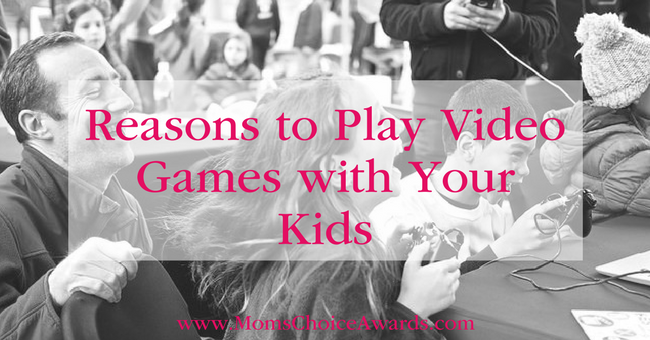 Randy Kulman, Ph.D
Randy Kulman, Ph.D
Author | Doctor
Twitter | Facebook
Parents try all types of strategies to help their kids stay organized. They buy storage containers, crates, and shelving -all with the goal of getting their kids to put stuff away. For school, binders, book bags, and backpacks are often full of old papers and sometimes rotting food. But what would happen if your child had a chance to experience some fun, guided practice of organizational skills that she could apply to her own needs? I’d suggest that you consider playing video games with your child.
One of the major misconceptions about children’s video-game play is that it’s a solitary activity, with children isolated in their bedrooms. However, current data indicate that more than 65% of video-game play is social in nature. What makes this great for parents is that kids often want to play with family members. Playing in an MMO (a Massive Multiplayer Online game) is fun and gives parents and kids an opportunity to play while physically together or apart. It works if a parent is away on a business trip or even (ahem) at work.
 Playing together with your child in a Massively Multiplayer Online game (MMO) requires a great deal of cooperation and can offer excellent opportunities to practice the skill of organization. Your skills and in-game items can frequently be used together when you are working as a team in these games. The skill of organization needs to be employed so that each player is aware of what each of you has, and together you can figure out what you need to be able to perform your quest. To help your child learn about Organization through an MMO, point out the times during game play when you need to keep track of your in-game items (armor, weapons, potions, etc.) or sort through your inventory while trying to find something specific.
Playing together with your child in a Massively Multiplayer Online game (MMO) requires a great deal of cooperation and can offer excellent opportunities to practice the skill of organization. Your skills and in-game items can frequently be used together when you are working as a team in these games. The skill of organization needs to be employed so that each player is aware of what each of you has, and together you can figure out what you need to be able to perform your quest. To help your child learn about Organization through an MMO, point out the times during game play when you need to keep track of your in-game items (armor, weapons, potions, etc.) or sort through your inventory while trying to find something specific.
Playing these types of MMO games with a disorganized child can be particularly helpful because it provides an opportunity to discuss organizational skills outside of the game. If your children have difficulty finding things in their room or backpack or never seem to know where anything is, games that require organization might provide them with some basic strategies about how to approach these tasks. Games such as Star Wars : Uprising, where players need to remember where to go back in the game to find the materials they need, require organizational skills.
Playing together also provides the chance to model organizational skills. While your child may be far more skilled at the game than you are, you may be able to ask questions that focus on organizational aspects of the game such as why do you need specific supplies to succeed or how did you find what you needed to progress in the game?
Once you have worked together as a team on a video game, you may also be able to team up to help your child improve his or her organizational skills outside of the game. Here are a few ideas for taking your game-based teamwork to help with real-world organizational tasks:
1. Use the terminology of the game (quests, experience points, levels, characters) to discuss improvements and changes that your child could make to improve his or her skills.
2. Rather than simply organizing for the child, take the same approach you did in the game: ask questions, work together, and set goals related to organization that will help him or her improve achievement at home and at school.
3. Use your child’s enjoyment of video games to generate a discussion about how important it is to know where things can be found in video games – and in the child’s room or backpack.
 About Randy Kulman
About Randy Kulman
Randy Kulman, Ph.D. is the Founder and President of LearningWorks for Kids http://learningworksforkids.com/ , an educational technology company that specializes in using video games to teach executive-functioning and academic skills. For the past 30 years, Dr. Kulman has also been the Clinical Director and President of South County Child and Family Consultants, a private practice that specializes in assessment of children with learning disorders and attention difficulties.
Additionally, Dr. Kulman is the author of numerous essays and book chapters on the use of digital technologies for improving executive-functioning skills in children. His current research projects include the development of a parent and teacher scale for assessing executive-functioning skills in children and a large survey study examining how children with ADHD and Autism use popular video games and apps. He is an advisor and occasional writer for ADDitude Magazine, Commonsensemedia.org, and Toca Boca. He is the author of two books; Train Your Brain for Success: A Teenager’s Guide to Executive Functions and Playing Smarter in a Digital World.
View all posts by Randy Kulman here.






3 Comments on “Reasons to Play Video Games with Your Kids”
i love playing video games with my nieces and nephews
My kids are adults now but when they were young we played many video games together,they taught me so much!
:)